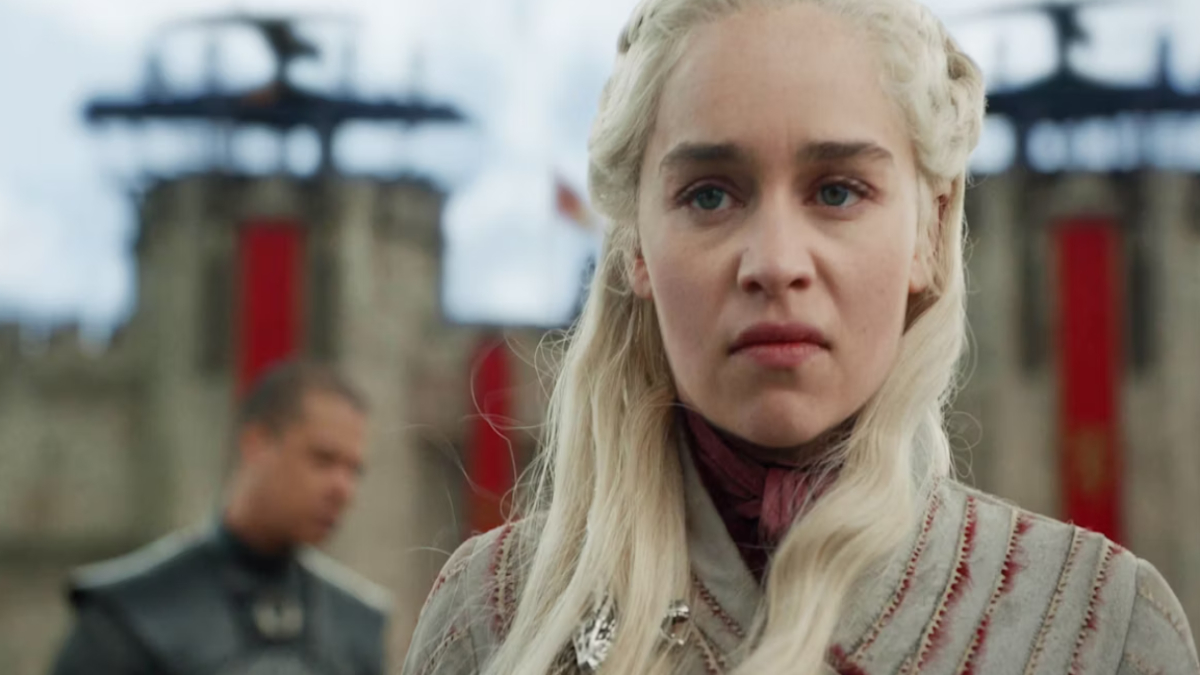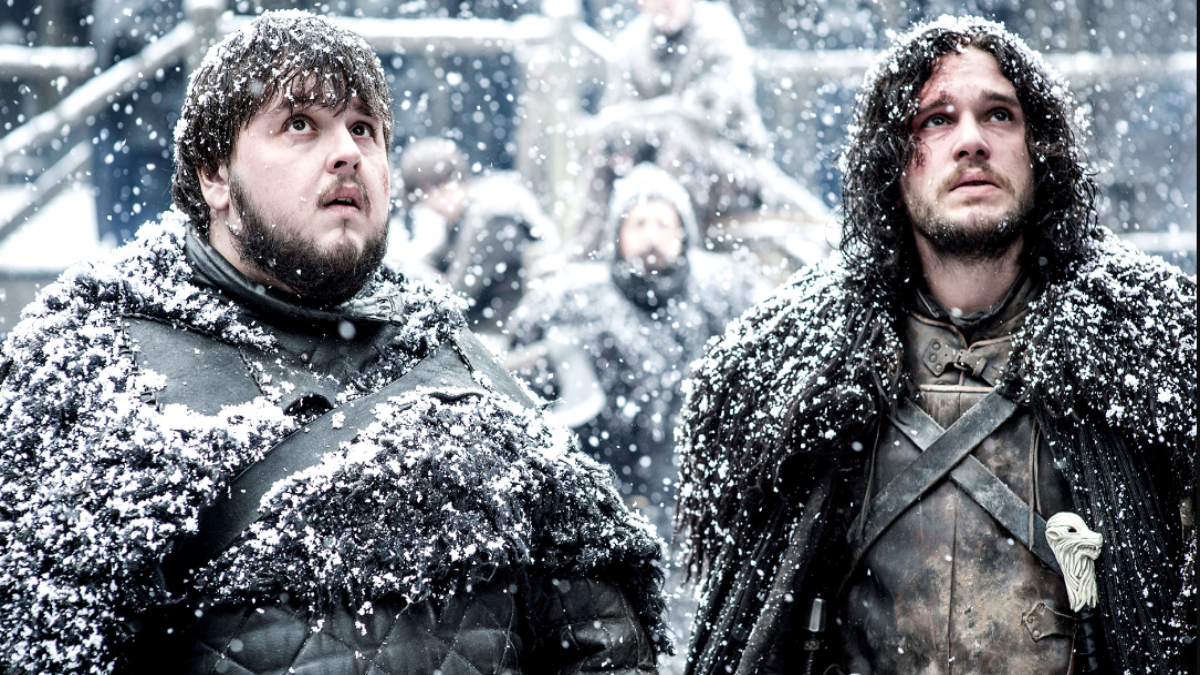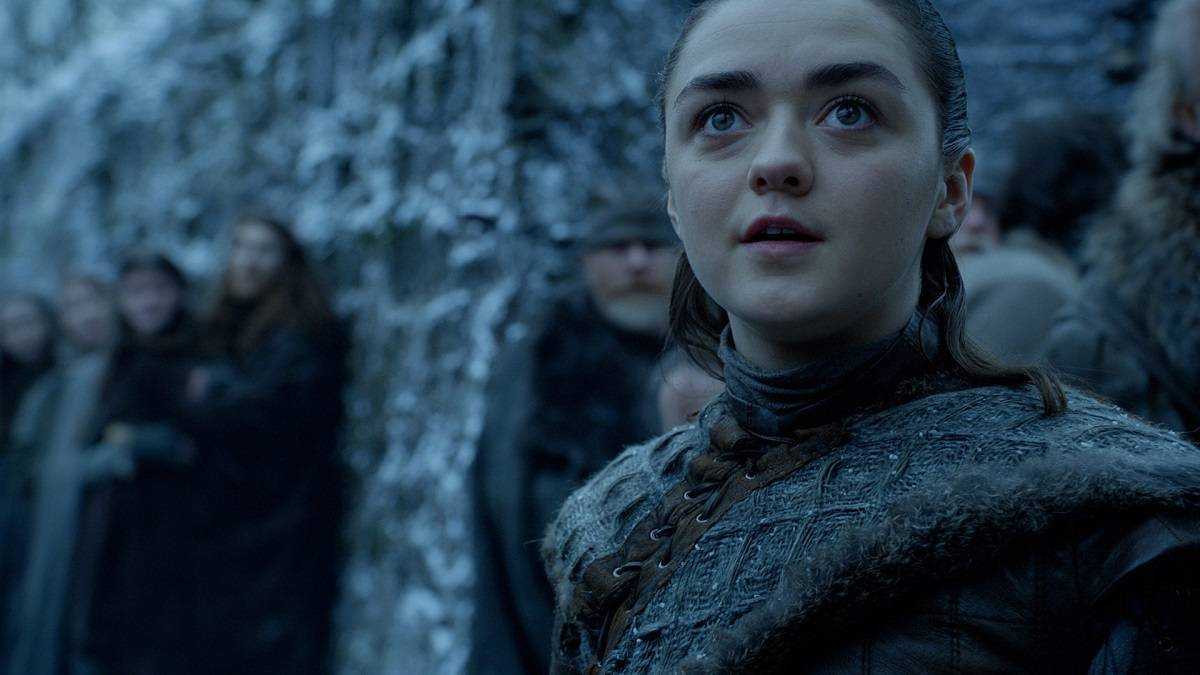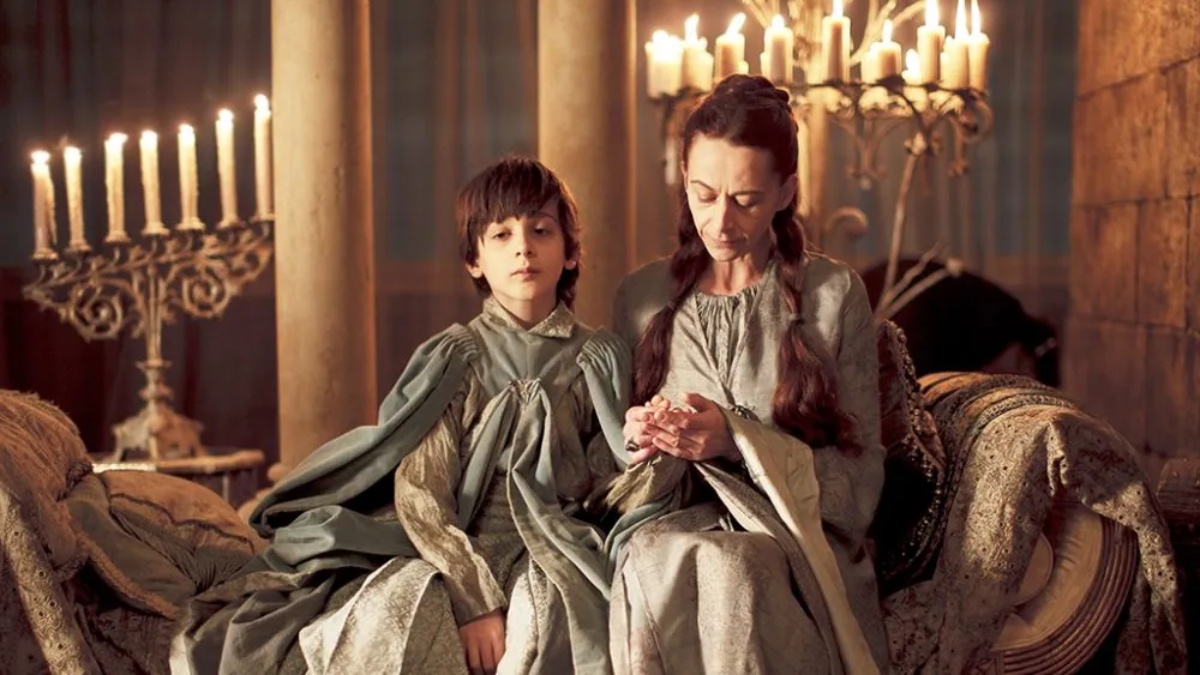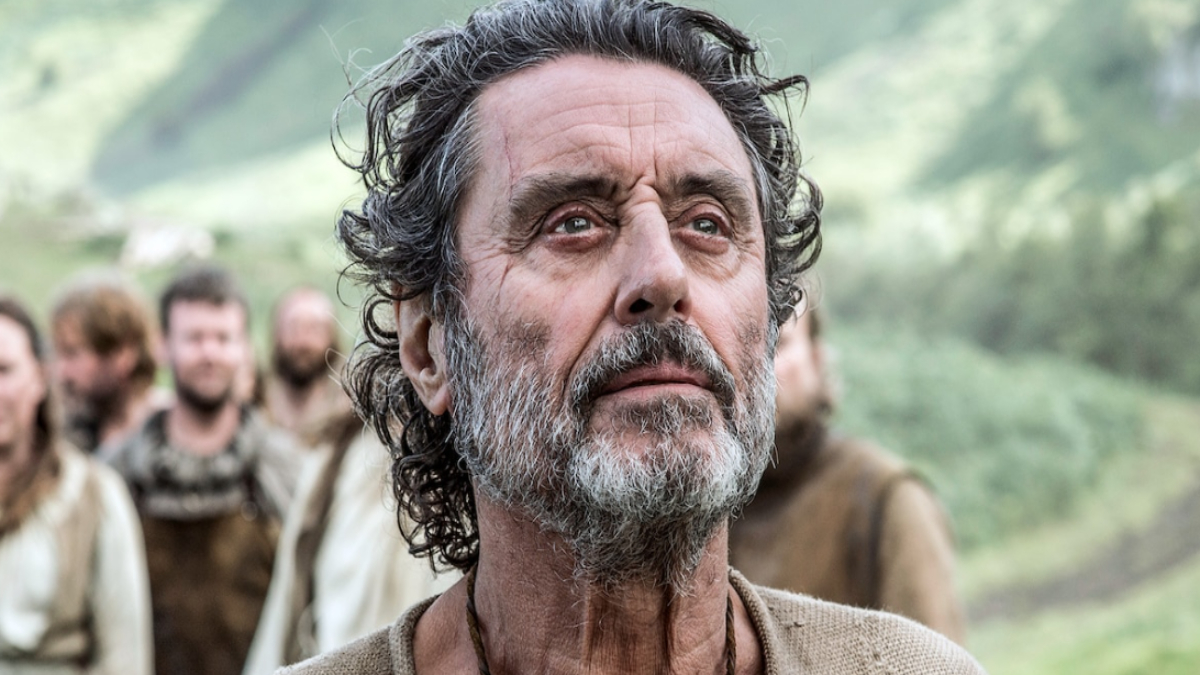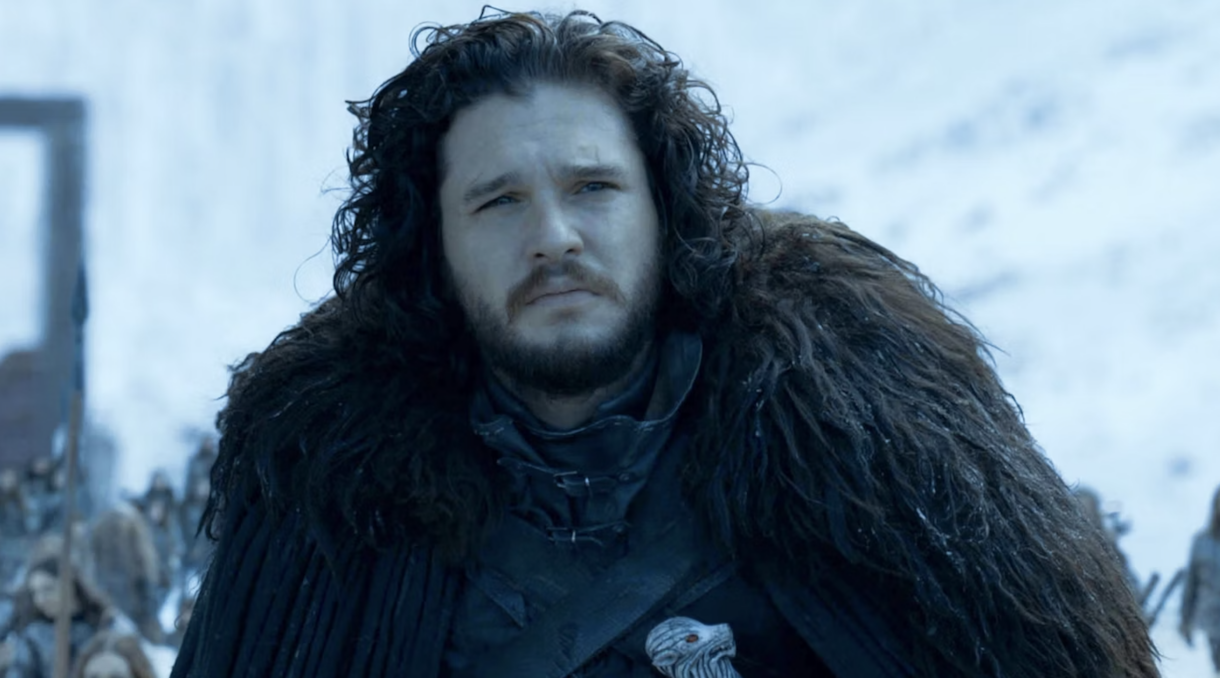Winter has definitely reached Westeros. It is with a grand, eerie ending that the final episode of the seventh season makes this statement. While the paths of those who are alive cross and part, death seems ready to conquer all. Valar Morghulis, we have learnt this lesson almost too well. And the breach opened by the army of the dead, allowing death to literally invade the realm of the living right after witnessing the two more canonic heroes of the series consume their passion, is yet another reminder of this bitter truth.
The scenario is certainly worthy of Martin’s approach. What we are contemplating, as the credits scroll, is the disquieting awareness of death’s impassibility, the awareness of its relentless, overwhelming wave that annihilates every game men might choose to play. The game of thrones is not any different. Petyr Baelish’s death is a further confirmation of this.
The game has lost its perhaps finest player. The curtain falls on the architect of discord. And as the creators of the show are preparing to let the curtain drop for good in the final season, one can’t help wondering whether its fabric has suddenly become too heavy to be smoothly handled.
The freezing sensation that the final moments of this season finale left on everyone’s spine has had plenty of time to melt. A burdensome question now floats in the audience’s mind: what has all amounted to?
It is a question worth raising both to the characters and to the overall season.

Having no knowledge (unless one wants to consider “knowledge” the rumbling theories and allegedly leaked information on the final season) of the proceedings of what we have hitherto witnessed, it can be tempting to declare that this season was problematic, to say the least.
The experience of this whole season could be summarised in the opening sequence of this final episode. Watching powers position themselves on the board for the final war. And while both the final episode and the overall season achieved some major, and majorly needed, plot-points, the way these were reached leaves more to be desired.
Perhaps the main issue was that this season attempted to reach too much, too quickly. It is hard not to notice that much of the action we had awaited was packed into small sparkles that were spread amidst a lot of talking. As the quality of the dialogue seems to have gotten a bit stale, it is with a certain regret that one considers how many narrative chances were missed. While it can be hard to point exactly at those parts of the script that misrepresented a character or a situation, something definitely seemed a bit “off” during most of the characters’ interactions. More than meeting some well-deserved ends, this season has rushed us through some open plots, hasting to put an end to them.
Such is the feeling impregnating the characters’ reunion at the beginning of the season finale. Too snappy, unnaturally filled with quotes from previous episodes. Some extra effort could have been put into these moments (or into clarifying how exactly Tyrion seemed to have managed to persuade his sister to join Daenerys and Jon’s cause). Instead, we get a peculiar parade of cheekiness opening the episode: Bronn and the Kingslayer discussing the male reproductive apparatus as an interpretative key of life, the universe, and everything, followed by Daenerys arriving late at her meeting after presumably peeking in her brand-new: “Acting Like a Boss For Dummies”.
Even in this last episode, our stormborn, dragons-mother, chain-breaker, aspirant wheel-slayer queen proves again that in Westeros a good curriculum isn’t everything: a majestic proof of her power that was. If only it had been put to more use! A pinch of extra wisdom would not have hurt her either: Cersei, already determined not to let the fear of dragons put a stall to her ambition, has quickly taken a hint and considered that, while Daenerys’ monstrous children have been used only to make some Tarly-roast, they have also managed to decrease in number. Fantastic. Hands down, while we’re not quite sure what will happen to Cersei, whatever the outcome of the “Great War”, one can’t help feeling confident that she wouldn’t only still have three dragons, but would have probably managed to find some sorcery to build up an army of dragons in the meantime.
Which brings us to a further consideration: Martin’s writing had certainly gotten us used to betting with particular caution on any possible winner, in any possible situation. Several choices concerning Daenerys’ character seem to be aimed at proving this point one more time. Yet, we are also left with the perception of a certain superficiality affecting this season’s writing.
We could share a similar feeling towards Jon’s sudden lobotomy, which brought him to the most resounding display of naivety since Eddard Stark’s famous conversation with Cersei. However, Dany’s list of sloppy decisions has acquired a shameful length in this season. A length more appropriate for the bride-child she was several seasons ago, less so for the fierce menace and hypnotizingly charming ruler she seemed at the end of the sixth season.
In a way, the general problem with the character of Daenerys is shared by the overall season. The expectations were high, and the potential was great. But what has been achieved really leaves much to be desired.

The other characters cannot be fully exempted either. From the several missteps taken by Tyrion, to the abandonment to megalomania that has affected Cersei, our players seem tired. Unfocused to say the least.
Perhaps part of this will prove symbolic. One last shot at playing the same cards even though the game has clearly changed. The fear that has filled fans of the series relies more on the possible responsibility screenwriters will have to take, rather than the more justifiable short-sightedness of the contenders to the Iron Throne.
Littlefinger’s death is another instance of dramatic choice that leaves us a bit dissatisfied. Not that there’s not a grim beauty in this retaliation. After seeing the great Tywin Lannister perish on a very different sort of throne, Lord Baelish’s end seems almost kind. The true regret for the end he met concerns less the idea that the player has been played than the idea that the way the audience has been driven into this little game felt much less subtle and refined than what we had gotten used to.
We could consider the theory some have argued to partly save the honour of an otherwise shamefully lazy deception. The theory in question states that it wasn’t until Littlefinger tried to persuade Sansa that Arya’s ultimate aim was to become Lady of Winterfell that Sansa realised Baelish’s game and decided to turn it against him. However, if that is what actually happened, we would find yet another unwise choice. Why would we have had to sit through plenty of scenes depicting the growing animosity of the Stark sisters? What we are left with now is an almost uninformative sequence that goes deeply to the detriment of a more interesting interaction.
The young Targaryens’ love also could have used some less cliched writing. Still, thousands of hearts that had been supporting the birth of this dangerous love undoubtedly melted. Yet, it is worth remembering that “dangerous” might be the essential key-word here.
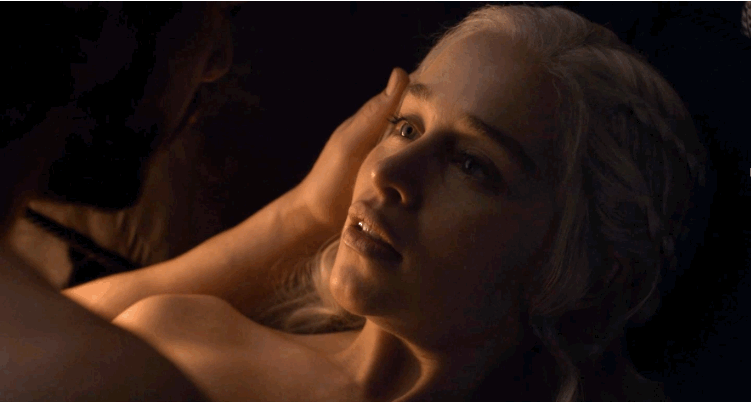
While the theories on the awaited second-coming of Azor Ahai abound, one cannot easily ignore how this revelation of Jon’s true identity makes him also the “owner” of the “song of ice and fire” (roll credits). And Jon/Aegon’s song is likely to be a funerary one. Unbeknownst to him, he has been following the steps of both fathers: the one he has always felt he’d never reach, and the one he’s never even suspected existed. A curious destiny for a character who has been striving to reach basic legitimacy, to be the one legitimate heir to an uncomfortable throne. Furthermore, were the writers in fact determined to make the past return, Jon/Aegon’s character could be one suffering a peculiar tragedy. The one of a hero whose deeds have already been sung. The bleak tragedy of predestination, we might call it.
Of course, however, one can never be too sure about anything when it comes to Game of Thrones. Perhaps the writers will eventually choose to side with Tyrion on this one. As he famously said to Jorah Mormont:
Prophecy is like a half-trained mule. It looks as though it might be useful, but the moment you trust in it, it kicks you in the head.
Every fan of the series, just as every fan of the books before the series was even planned, would have encountered a difficulty in trying to provide a brief description of a narrative as vast and complex as this great modern epic. It is part of the charming quality of Game of Thrones. As the end approaches, it is with some bitterness that we realise that providing an overall description without being too reductive could come easier. And it is with some fear that we hope that the ending will not make us quote another Lannister, Cersei, as she considers:
Everything we have suffered will have been for nothing. Everything we have lost will have been for nothing.
Will this eventually come to be the story of the return of a great hero from the past, that shall rise from his humble origins and grow to be the world’s saviour? Or will this be ultimately a story of unrecognised threats to civilisation, much following the environmental parallelism many have wanted to see in the White Walkers?
The hope can only be that, whatever the final scene before the curtain drops, the minds behind the stage will manage to surprise us, and give dignity to what stands as one of the best products available on television.


